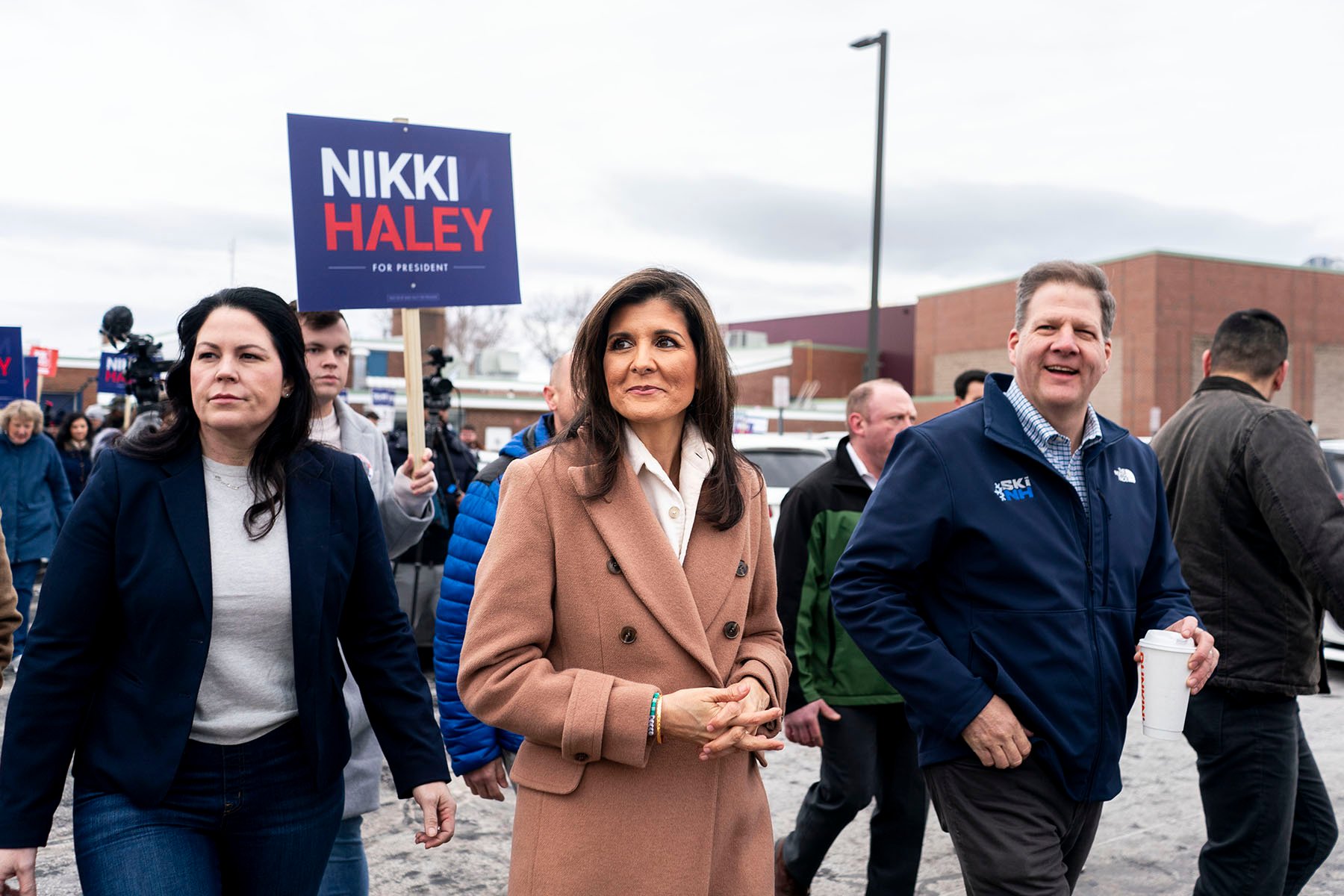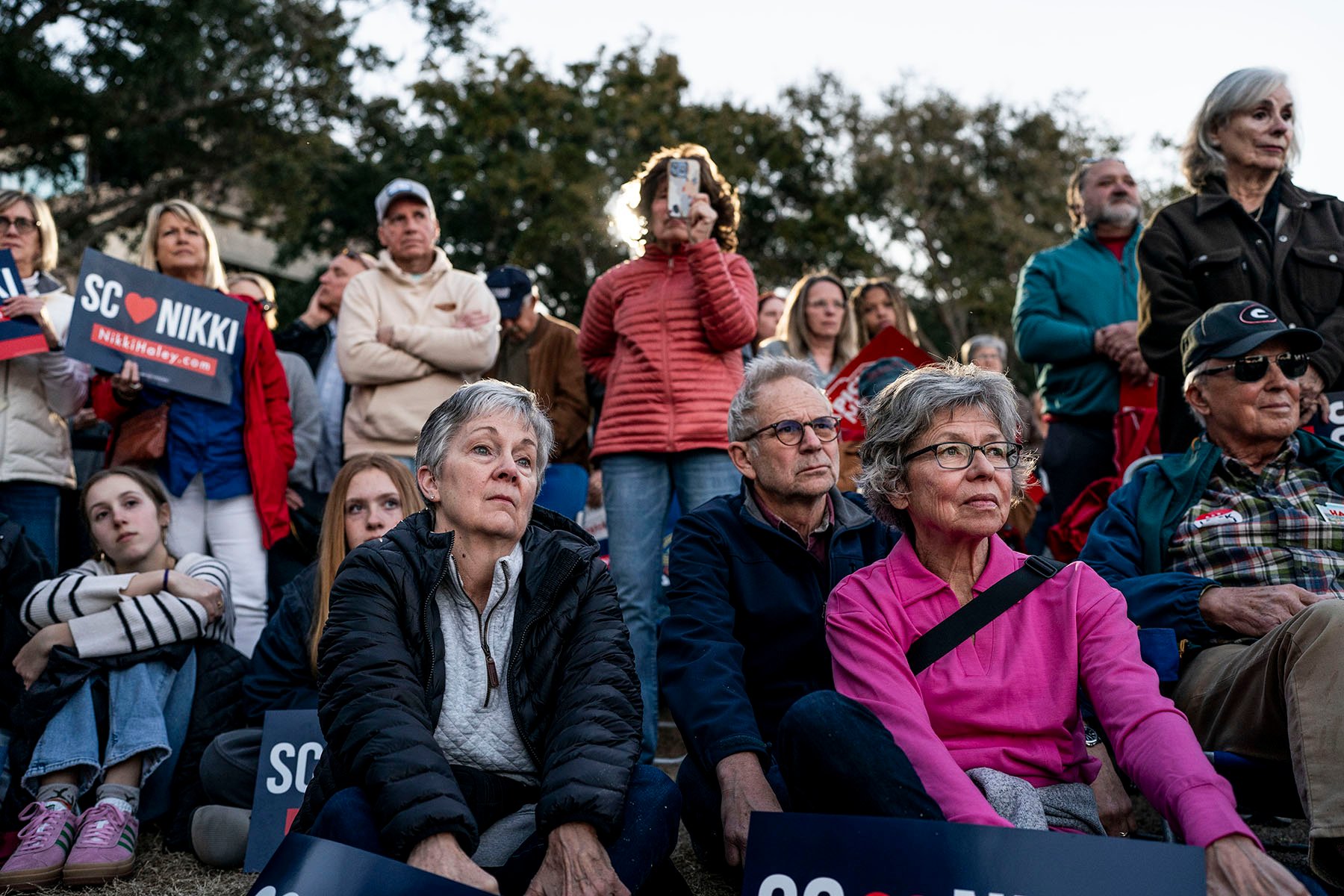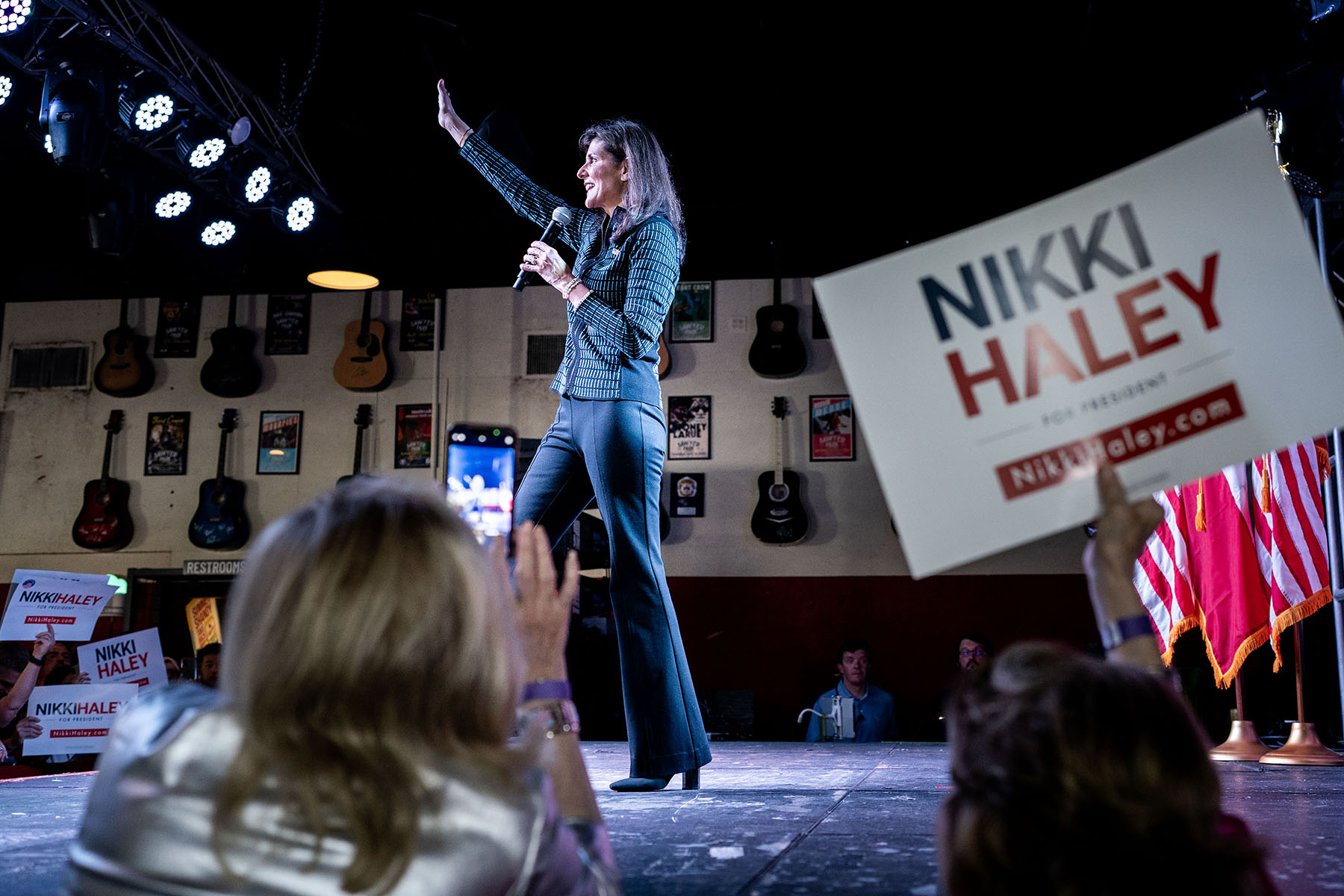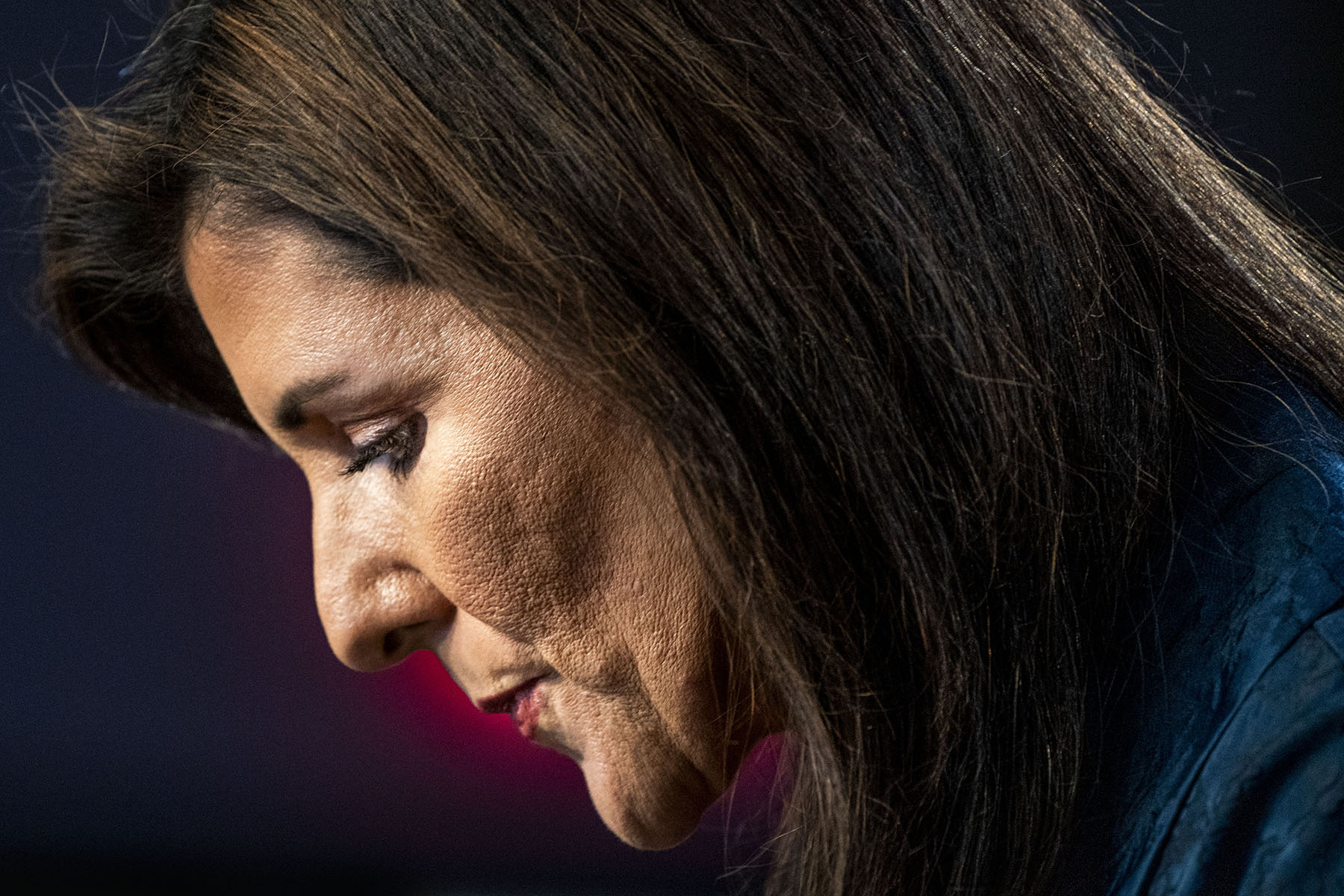Nikki Haley, whose unlikely trajectory from polling in single digits to becoming Donald Trump’s last remaining rival made history for women in Republican politics, is suspending her presidential campaign.
Haley announced her decision during a speech in Charleston, S.C., Wednesday morning, after a series of defeats on Super Tuesday all but closed off her path to the nomination.
“The time has now come to suspend my campaign. I said I wanted Americans to have their voices heard. I have done that. I have no regrets,” Haley said, adding that she is not going to immediately endorse Trump and that she expects him to “earn the votes of those in our party and beyond who did not support him.”
Haley, the former governor of South Carolina and U.S. ambassador to the United Nations, became Trump’s first major challenger in the 2024 GOP primary field, asking voters to reject “stale ideas and faded names” and send “a tough-as-nails woman to the White House.”
Throughout her campaign, she eschewed liberal gender politics, downplaying the role of her race and gender on her political views in front of conservative voters, and rarely talked about history-making or trailblazing. Even so, Haley embraced some forms of traditional femininity by talking about her role as a mother and a wife, and took to referring to the men in the GOP field as “the fellas.”
Haley, the daughter of Indian immigrants, is one of a handful of high-profile women to have sought the Republican presidential nomination and the first Asian-American woman to ever do so. Last August, she became the 12th woman ever — and the third Republican woman — to participate in a presidential debate in the nation’s 200-plus year history of presidential politics.
In a country where voters’ perceptions of who is electable have long hindered women candidates, Haley has already upended expectations for women presidential candidates in the modern GOP.

Coming into the 2024 election cycle, no Republican woman had yet won a presidential primary or caucus. Haley’s projected victories in Vermont and Washington, D.C.’s presidential primaries makes her the first Republican woman seeking the presidency to win two nominating contests
Through nominating contests from the Iowa caucuses through Super Tuesday, Haley secured a record number of delegates for a Republican woman seeking the presidency: 88, with the potential for more still to be tallied. The previous record was a single delegate. Haley also appeared on the ballot in a record number of states for a Republican woman at 26; the previous record was two.
Still, Haley fell short of her campaign’s goals, trailing Trump by wide margins in almost every state where they competed.
Even as Haley made the case to voters that she was a better ticket to Republican success in the fall, and that Trump presented the party with an “unhinged” and “diminished” leader, Republican voters across more than a dozen states did not seem open to an alternative, at least not Haley.
Haley’s criticisms of Trump, whom she had largely avoided for most of the primary campaign, only intensified after she became his last standing rival. Haley harped on the former president’s age, 77, to question his cognitive ability, and often referred to his vindictive tendencies as dangerous for the future of the country.
Trump sometimes fired back with the kind of bashing he has reserved for his fiercest rivals, giving airtime to Haley criticism at rallies even as analysts argued that, given his easy victories in the early states, his true rival was President Joe Biden.

Trump’s attacks included racist and sexist remarks delivered at rallies and on social media. In a social media post, Trump repeatedly referred to Haley by a butchered version of her first name, Nimarata, and falsely claimed she was ineligible for the presidency because her parents were immigrants. On the night of the New Hampshire primary, Trump mocked Haley’s attire, telling a crowd at his victory party that her “fancy dress that probably wasn’t so fancy.” In the leadup to the South Carolina primary, Trump mocked the absence of Haley’s husband from the campaign trail; Michael Haley is serving a one-year deployment in Africa with the South Carolina National Guard.
Haley faced several controversies of her own during her campaign. Most notably was her decision to not mention slavery when, at a December New Hampshire town hall, she was asked about the reason for the Civil War. It was a stunning moment for a former governor who often talks about her leadership getting the Confederate flag removed from the South Carolina state capitol.
Haley tried to walk back her comments in a series of interviews following the event, first saying she thought it was “a given,” and eventually making a surprise appearance on a “Saturday Night Live” skit to to poke fun at the gaffe, saying, “Yep, I probably should’ve said that the first time.”
Earlier in the campaign, Haley also called the participation of trans girls in girls sports “the women’s issue of our time.”
Haley also made headlines after saying in an interview that she considered embryos created through in-vitro fertilization (IVF) to be babies. She did so in response to a question about a recent court ruling in Alabama that assigned personhood rights to these embryos. Haley did not criticize the decision, which hung on the state’s anti-abortion laws and quickly impacted access to the fertility treatment.
In a series of interviews and appearances, Haley walked back her comments gradually. Eventually, Haley said during a campaign rally that she believes decisions about the fate of embryos created through IVF should be strictly between the parents and the doctor, no one else.”

The issue of abortion highlighted the ways in which Haley’s gender shaped her run for president. Haley was unwavering in her support for anti-abortion policies throughout the campaign, even saying she would have signed a six-week abortion ban as governor. At the same time, Haley used her gender to position herself as a more moderate voice on the issue next to the rest of the GOP field. Haley said repeatedly that “the fellas don’t know how to talk about abortion,” and that as a woman, she thought the party should talk about the issue with more compassion. Haley talked about a college roomate’s rape and her own struggles with infertility on the campaign trail, elevating these experiences to the national conversation in a party where women leaders remain underrepresented.
There’s no data to suggest that Haley’s gender drove support to or away from her, but gender was clearly on the minds of voters in the primary states where Haley campaigned.
Many women voters interviewed by The 19th from Iowa, New Hampshire, South Carolina and Virginia were quick to say Haley’s gender didn’t drive their support for the candidate. They did often mention Haley’s experience as a mother, the qualities of women leaders or even the prospect of a woman in the White House for the first time as exciting aspects of her candidacy.
During the Richmond, Va., event days before the state’s primary, local voter Kate Benson, 48, said she planned to support Haley, even though she has concerns about her views on women’s rights. Benson, who plans to support Biden if Trump wins the Republican nomination, said she came out to see Haley in what seemed like the final days of her campaign as a learning opportunity for her daughter.
“I want my daughter to see that this woman lost in her hometown, got up the next day, flew to Michigan and she kept on,” Benson said. “She’s not letting what people say or do get in the way of … what she thinks is right.”
On the other hand, even as data shows that majorities of voters think a president’s gender doesn’t matter, some voters in the GOP saw it as a detractor.
In a series of focus groups with two-time Trump voters organized by Longwell Partners, a consulting firm founded by anti-Trump Republican Sarah Longwell, several men and women voters said they wouldn’t support Haley because of her gender.
One woman said she thought foreign leaders wouldn’t respect a woman president. Another said she didn’t think Republicans broadly would embrace a woman president, meaning that a vote for Haley in the primary “is a vote down the drain.” A third woman said she thinks women, “we think with our heart.”
“I don’t want to sound, you know, bad or anything, but I just think I prefer male presidents and I think they are just stronger, talking and speaking,” one of the men said. “But you know, I don’t dislike Nikki Haley.”

Haley’s campaign in its final months focused heavily on the candidate’s electability, that she was the last woman standing against Trump and also had a better chance of defeating Biden in the general election. While women candidates often have to make the case that they can not only lead, but also win, Haley took questions of electability and presented them as her biggest strength.
“Women have been put on the defensive in terms of electability for a long time. She seems to be getting out ahead of it and going on the offensive, saying ‘I’m the most electable one, and here’s why.’ And I don’t know that we’ve seen a candidate at that same level do that so aggressively before,” said Amanda Hunter, executive director at the Barbara Lee Family Foundation, which has helped elect hundreds of women to public office.
“People will study this campaign in the future because she’s really turning a lot of that on its head.”







